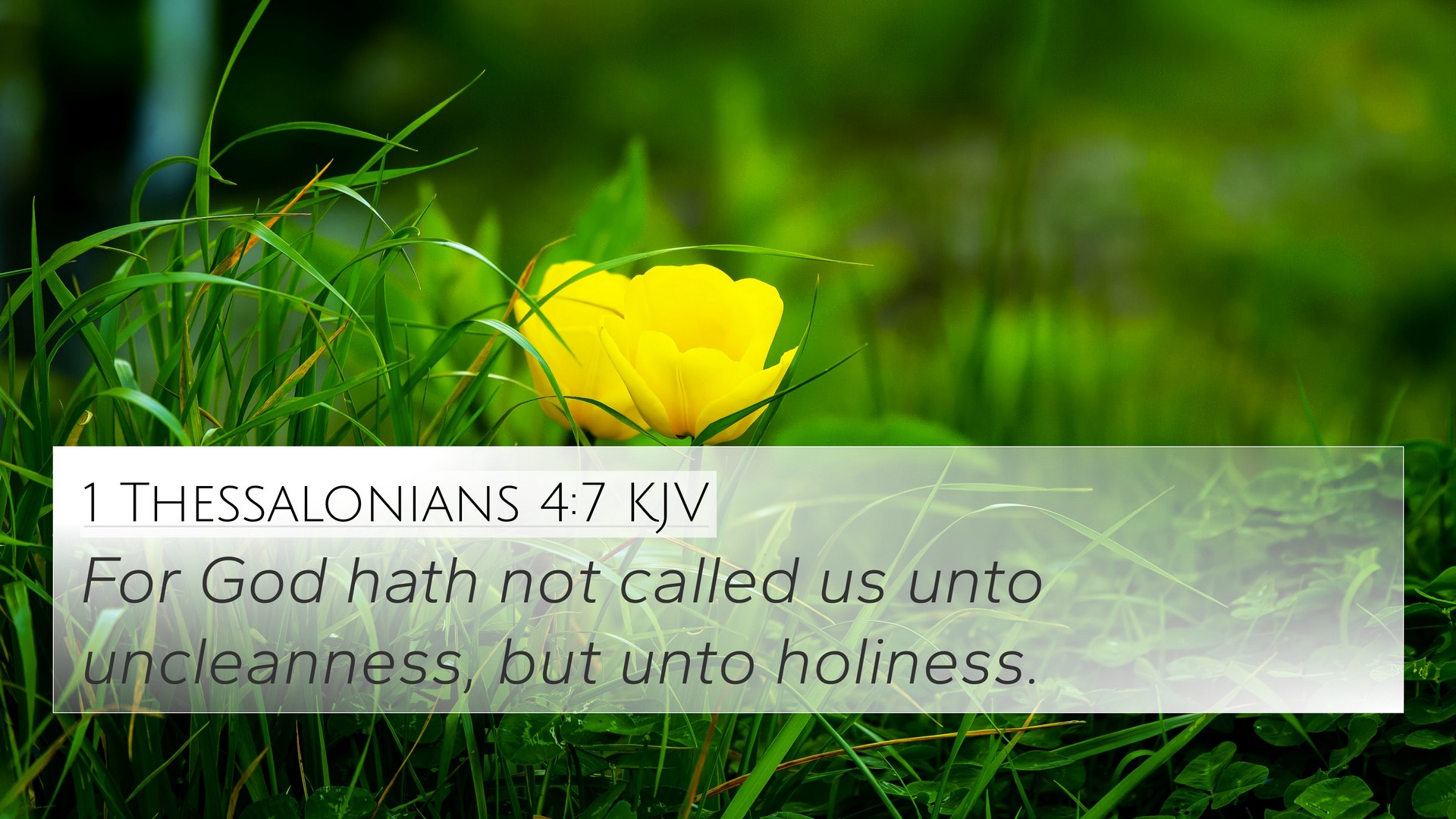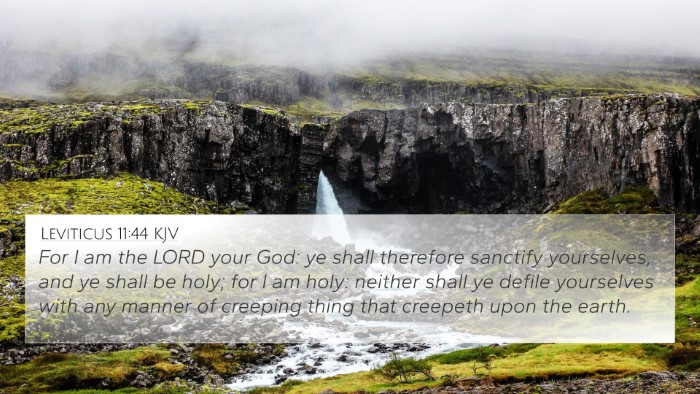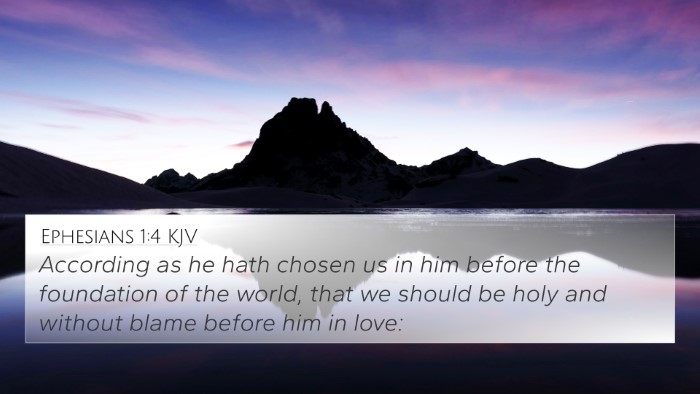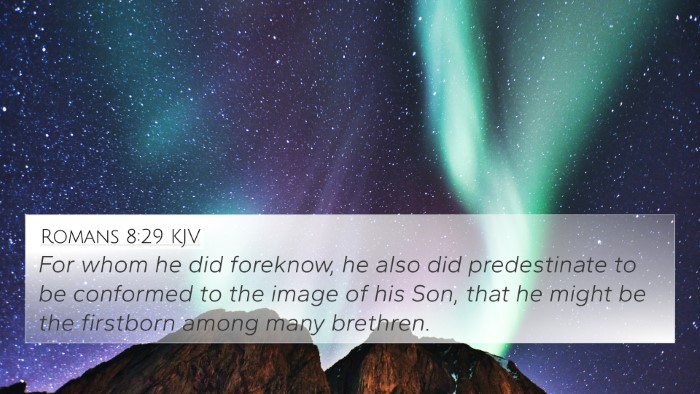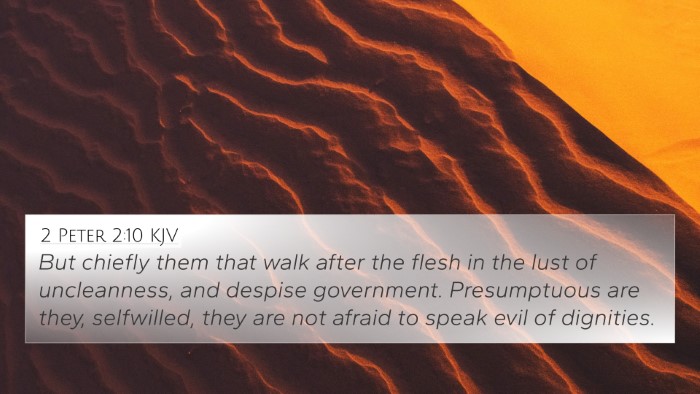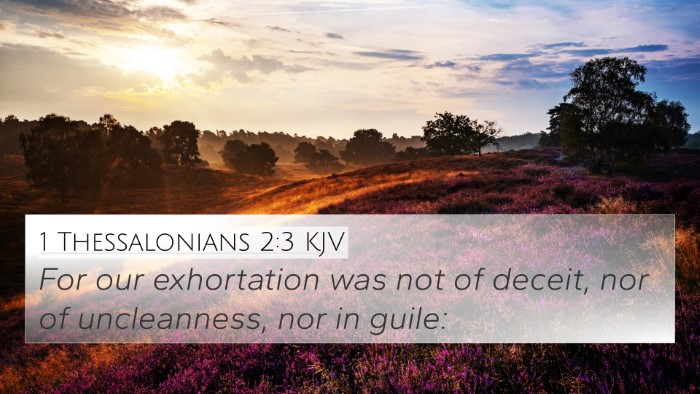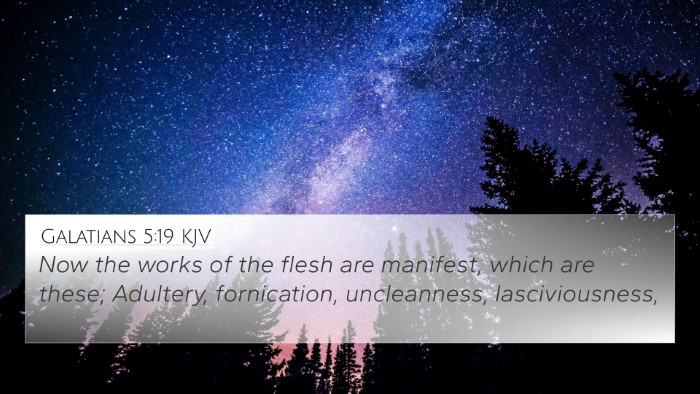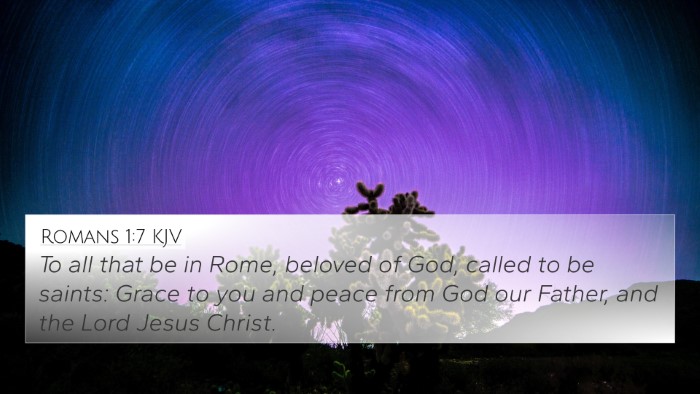Understanding 1 Thessalonians 4:7
Verse: "For God hath not called us unto uncleanness, but unto holiness." (1 Thessalonians 4:7)
Verse Meaning and Interpretation
This passage emphasizes the divine calling to holiness, anchoring the Christian life in moral purity and righteousness. The text contrasts 'uncleanness' with 'holiness,' delivering a divine directive for believers to live a life that reflects God’s character.
Insights from Public Domain Commentaries
- Matthew Henry: Henry interprets this verse as a reminder that God’s purpose for His people is not to indulge in sinful behaviors but to pursue a life that honors God. He stresses that holiness is foundational to the Christian faith and contrasted against the impurities of the world.
- Albert Barnes: Barnes highlights that the calling to holiness signifies a transformative approach in one's life that rejects worldly desires. He correlates this calling to the sanctifying work of the Holy Spirit, emphasizing the necessity of maintaining purity in thought, word, and deed.
- Adam Clarke: Clarke provides an affirmation that God’s call is not merely an invitation but a powerful compulsion towards a holy life. He illustrates that holiness reflects God’s nature and should be the ultimate goal for all believers, as it brings about peace and divine approval.
Thematic Connections in the Bible
1 Thessalonians 4:7 interconnects with several key themes and verses throughout scripture, enhancing our understanding of holiness and divine purpose.
- 1 Peter 1:15-16: Discusses God’s command to be holy because He is holy.
- Romans 6:22: Speaks of being freed from sin and becoming servants of God, bearing fruit unto holiness.
- Hebrews 12:14: Encourages believers to pursue peace and holiness, without which none will see the Lord.
- 2 Corinthians 7:1: Urges believers to cleanse themselves from all filthiness of the flesh and spirit, perfecting holiness in the fear of God.
- Ephesians 1:4: States that God chose us in Him before the foundation of the world, that we should be holy and blameless.
- Colossians 3:2-5: Calls for setting minds on things above and putting to death earthly desires, promoting a life aligned with holiness.
- 1 John 3:3: Emphasizes that everyone who has this hope in Him purifies himself just as He is pure.
- Leviticus 20:26: Declares that God has made His people distinct to be holy unto Him.
- Luke 1:75: Mentions serving God in holiness and righteousness all the days of our life.
- Philippians 2:15: Encourages believers to shine as lights in the world, reflecting God’s holiness.
Cross-Referencing Biblical Texts
Employing tools for Bible cross-referencing allows deeper comprehension of this verse and its implications. Resources like concordances and cross-reference guides can help in identifying interconnected themes.
For example, how do the themes of holiness presented in 1 Thessalonians 4:7 relate to teachings in the Psalms or references from the Gospels? This requires a comparative Bible verse analysis and a journey through scriptural cross-referencing.
Practical Application of Scripture
Understanding and applying the principle of holiness as derived from 1 Thessalonians 4:7 leads to a more profound engagement with one’s faith. Believers are encouraged to:
- Reflect on their lifestyle choices in light of God's calling to holiness.
- Engage in Bible study methods that emphasize cross-references and connections between different Biblical texts.
- Seek the Holy Spirit's guidance for the transformation needed to live a holy life.
- Foster accountability in community for pursuing holiness together.
Conclusion
1 Thessalonians 4:7 encapsulates a critical aspect of Christian doctrine—the call to holiness. Through examining associated scripture and employing comprehensive Bible cross-reference materials, believers can enrich their understanding and grow in their spiritual journey. Understanding the Word of God in its full, interconnected context assures a deeper connection with His purpose and character.
